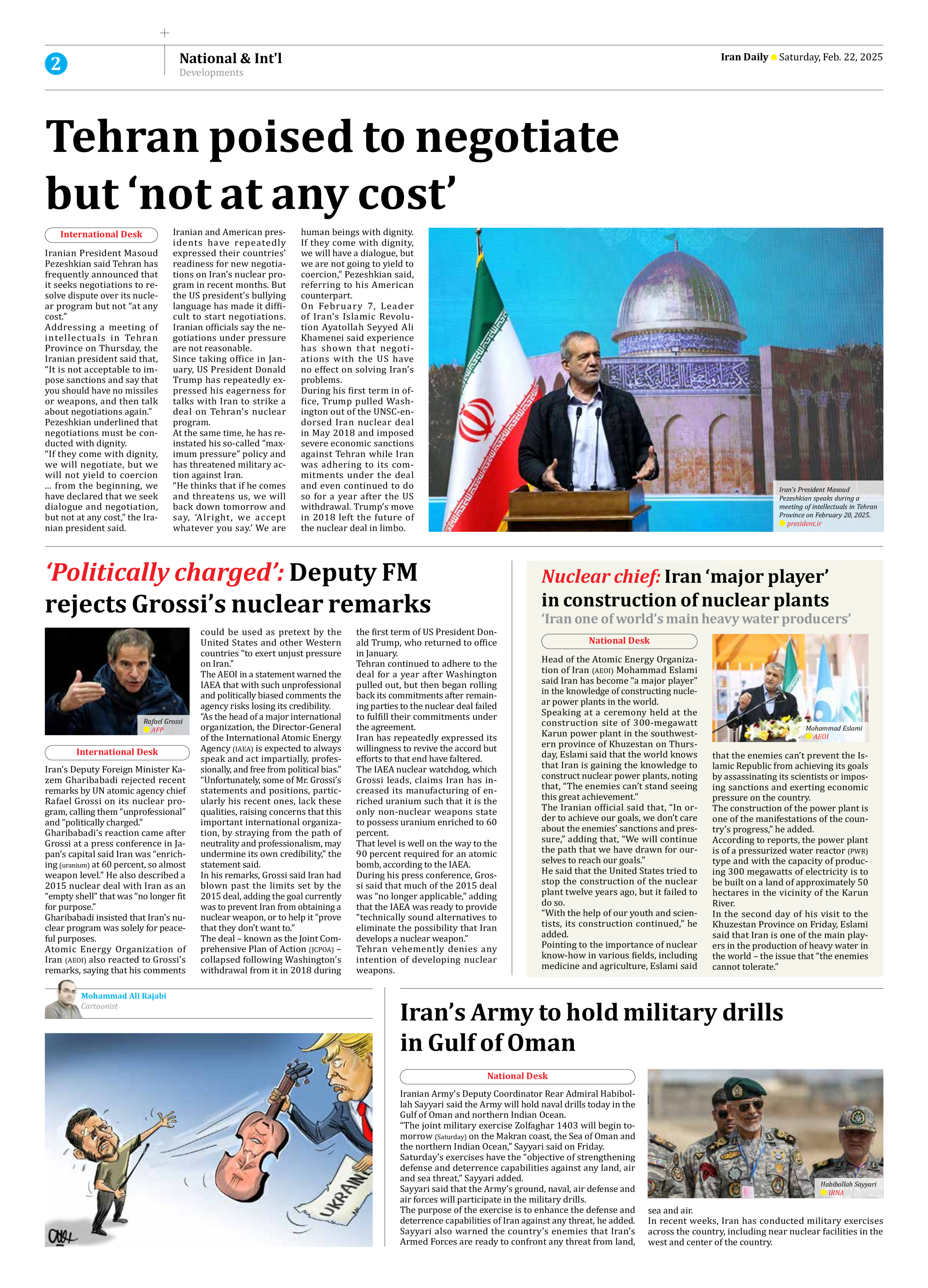
‘Politically charged’: Deputy FM rejects Grossi’s nuclear remarks
Iran’s Deputy Foreign Minister Kazem Gharibabadi rejected recent remarks by UN atomic agency chief Rafael Grossi on its nuclear program, calling them “unprofessional” and “politically charged.”
Gharibabadi’s reaction came after Grossi at a press conference in Japan’s capital said Iran was “enriching (uranium) at 60 percent, so almost weapon level.” He also described a 2015 nuclear deal with Iran as an “empty shell” that was “no longer fit for purpose.”
Gharibabadi insisted that Iran’s nuclear program was solely for peaceful purposes.
Atomic Energy Organization of Iran (AEOI) also reacted to Grossi’s remarks, saying that his comments could be used as pretext by the United States and other Western countries “to exert unjust pressure on Iran.”
The AEOI in a statement warned the IAEA that with such unprofessional and politically biased comments the agency risks losing its credibility.
“As the head of a major international organization, the Director-General of the International Atomic Energy Agency (IAEA) is expected to always speak and act impartially, professionally, and free from political bias.”
“Unfortunately, some of Mr. Grossi’s statements and positions, particularly his recent ones, lack these qualities, raising concerns that this important international organization, by straying from the path of neutrality and professionalism, may undermine its own credibility,” the statement said.
In his remarks, Grossi said Iran had blown past the limits set by the 2015 deal, adding the goal currently was to prevent Iran from obtaining a nuclear weapon, or to help it “prove that they don’t want to.”
The deal – known as the Joint Comprehensive Plan of Action (JCPOA) – collapsed following Washington’s withdrawal from it in 2018 during the first term of US President Donald Trump, who returned to office in January.
Tehran continued to adhere to the deal for a year after Washington pulled out, but then began rolling back its commitments after remaining parties to the nuclear deal failed to fulfill their commitments under the agreement.
Iran has repeatedly expressed its willingness to revive the accord but efforts to that end have faltered.
The IAEA nuclear watchdog, which Grossi leads, claims Iran has increased its manufacturing of enriched uranium such that it is the only non-nuclear weapons state to possess uranium enriched to 60 percent.
That level is well on the way to the 90 percent required for an atomic bomb, according to the IAEA.
During his press conference, Grossi said that much of the 2015 deal was “no longer applicable,” adding that the IAEA was ready to provide “technically sound alternatives to eliminate the possibility that Iran develops a nuclear weapon.”
Tehran vehemently denies any intention of developing nuclear weapons.







